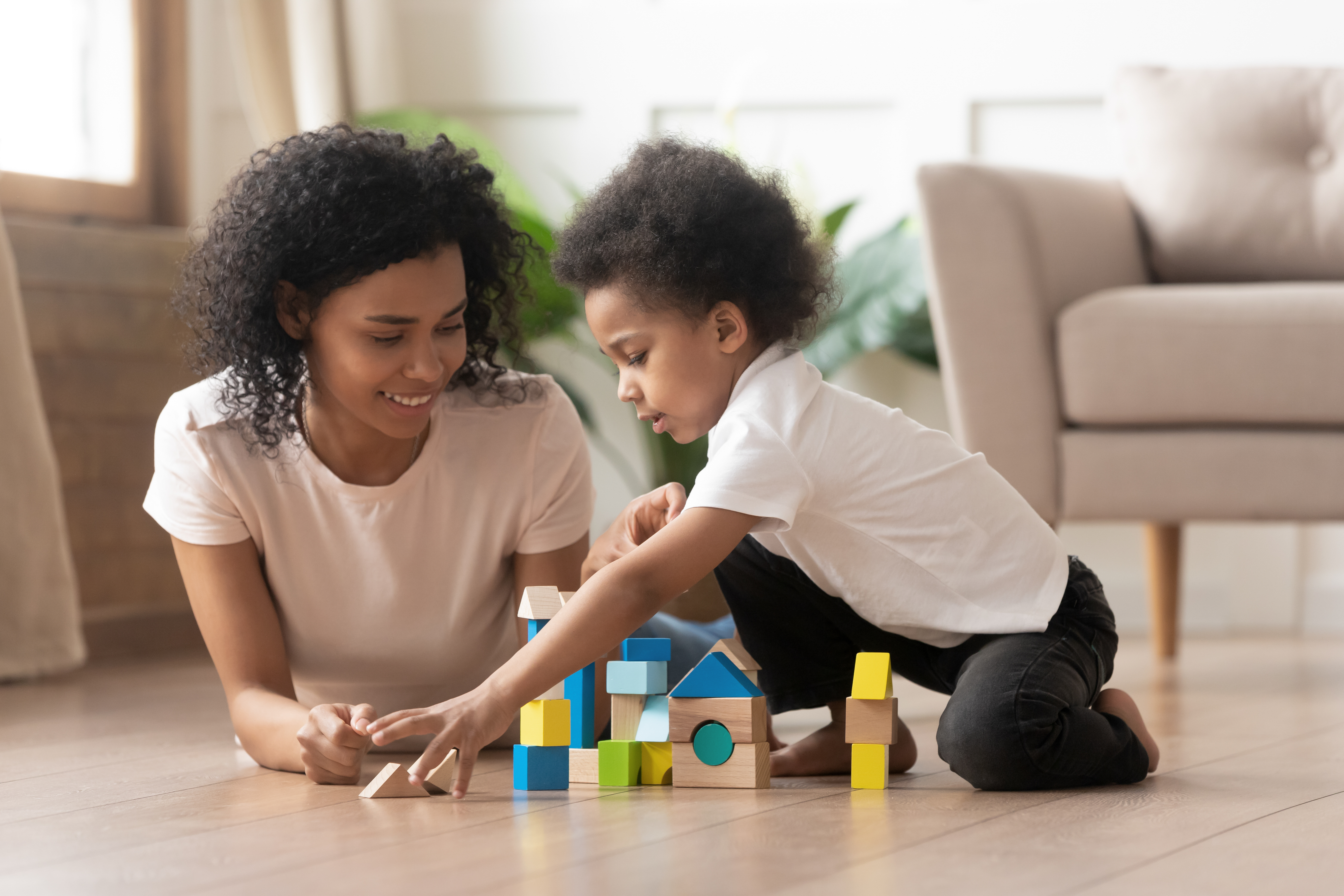Nurturing Young Children
Posté sur: Juillet 21, 2020By Nell O’Donnell Weber, EdD & Meredith Rowe, EdD

Now that we’ve both been home full-time with our respective children (2 toddlers for Nell and a high schooler, middle schooler, and elementary schooler for Meredith) for four months, it’s become even more clear to us how important it is that parents and other caregivers in children’s lives understand how every moment—every interaction—between a child and someone else is an opportunity for learning.
The learning that we want to share doesn’t involve complex lesson plans or involved science experiments. Instead, it is all about talking with our kids in ways that encourage and extend their curiosity and helping them master new skills—even if it is just scraping their plate before putting it in the dishwasher! We think that everyday moments are opportunities for learning.
For Nell, learning opportunities means following her toddler’s gaze as he points out a bird in a tree saying “bird!” Or, counting the couch cushions that have been on the floor for two days (once part of a pillow fort) as she and her three year old put them back on the couch. For Meredith, it means encouraging her eight year old to try a new approach when he is about to give up on a hard problem, or doing her best to explain to her 15 year old what an antibody test is and why it may or may not offer reliable and useful data.
These principles are at the heart of a new lesson, Nurturing Young Children, that we’ve written with Overcoming Obstacles for publication in the High School Level curriculum later this summer. We think that every student should graduate from high school knowing the enormous impact that they have in fostering the learning and development of young children. We want everyone to understand that young minds are incredibly malleable, and that kids aren’t just “born smart,” but that intelligence can grow and the way we interact with kids can help their minds develop. We want everyone to understand the concept of “serve and return,” where young children (even little babies!) use words, gaze, gesture, or body language to “serve” or tell others what they want and are interested in, and their parents, siblings, or caregivers “return” by reacting and extending the communication. Every little interaction a young child has is an opportunity to develop their minds—it’s amazing! All we need to do is respond meaningfully.
Overcoming Obstacles offers hundreds of free K-12 life skills lessons designed to prepare young people for all of the challenges life presents. It’s free now and forever and available for download by creating an account at overcomingobstacles.org.